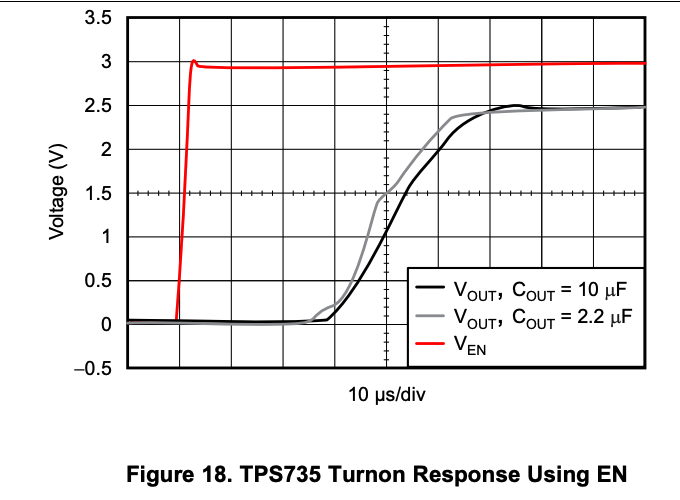Hello team,
I use TPS73501DRVR in my design, I want to the output delay when power on,the delay time is 20~30ms.
The input power is 5V, the output is 3.3V,I add the RC on the EN of TPS73501DRVR ,R=100k, C=1uF.
Since the VEN(HI)=1.2V, The delay time is calculated as follows:
delay time=ln(5/3.8)*100k*1uF=27.44ms.
Is the delay time calculation formula correct when power on?
Is there any other delay time need to add when power on?
Could you help to review the SCH as attachment, please give your comments,
Thank you.
kevin



